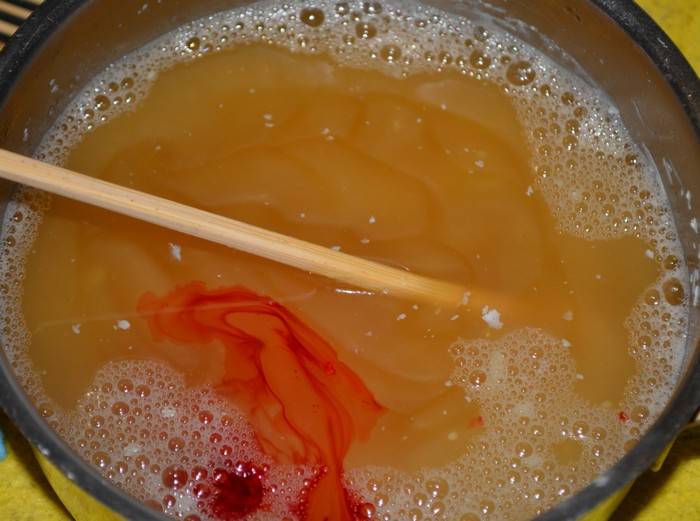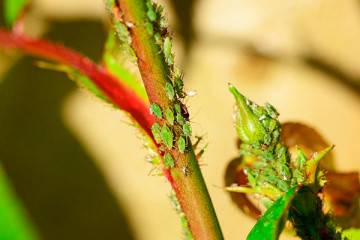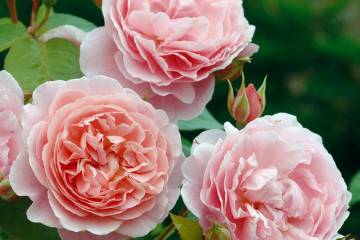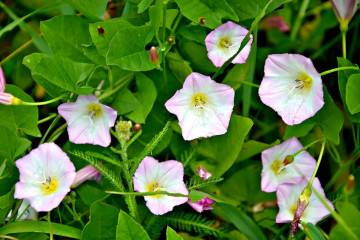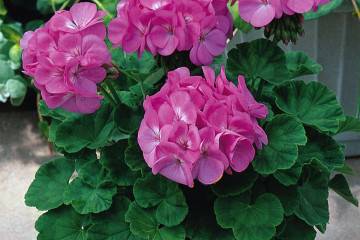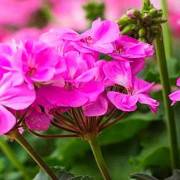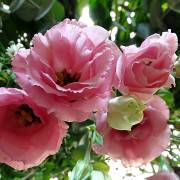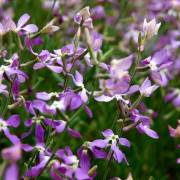Aphids on roses - how to fight, folk remedies
Content:
Rose is an amazing and beautiful plant that is popular among gardeners. When growing such a flower, people rarely encounter problems. However, there are times when the planted flowers die due to the attack of aphids. Therefore, in order to save flowers, you need to familiarize yourself with why aphids appear on roses, how to deal with folk remedies and how to prevent its appearance.
Reasons for the appearance
Before you start treating indoor plants, you need to familiarize yourself with the causes of the appearance of aphids.
There are several main ones, because of which garden roses can suffer from aphids:
- planting plants in non-disinfected soil. Before replanting flowers, the soil must be treated with special disinfectants that disinfect the soil;
- the appearance of a large number of ants on flowers. These insects not only feed on sap from plant stems, but also carry aphids. Therefore, if there are a lot of ants near the roses, it is necessary to spray the soil and flowers with pest control agents;
- planting near roses plants infected with pest eggs.
Signs of defeat
The following signs indicate that domestic roses are affected by aphids:
- sick appearance, wilting of foliage and flowers. If a parasite has wound up in a rose, it will definitely start to fade. This is the first sign to look out for. When yellow and sluggish foliage appears, it is necessary to conduct a visual inspection of the rose and, if aphids are found, remove the affected areas;
- bite spots on the surface of green leaves. Outwardly, they resemble small yellowish dots. You can see them only upon closer inspection of the surface of the sheet plates;
- sticky mucus on foliage. When a pest appears on the petals and foliage of roses, a sticky liquid remains. This is the secretion of aphids, which she leaves while sucking the sap from the plants;
- white bloom. If roses have been affected by aphids for a long time, a white bloom appears on their leaves and stems. These are the shells of young larvae, which they shed during molting.
Aphids on roses: how to fight, folk remedies
It is not necessary to control pests with chemicals. There are equally effective folk methods of insect control that will help you quickly destroy aphids.
Soap solution
If there are not too many aphids, and they have appeared recently, the rose can be treated with soapy water. When preparing a spray mixture, it is imperative to observe the proportions. 250-300 g of laundry soap should be grated and added to a 10-liter bucket of water.
Ammonia
To get rid of aphids, spider mites and other pests, ammonia will help. Using this improvised tool, you can prepare a solution that will help save roses from dangerous insects. Once in the ground, the alcoholic composition not only destroys pests, but also begins to act as nitrogen fertilizer. Therefore, the use of ammonia promotes the flowering and growth of roses.
The mixture is prepared from 10 liters of water and 50-70 ml of alcohol. The liquid is thoroughly mixed, after which it can be used to process flowers. Spray roses with ammonia twice a month.
Garlic infusion
Another effective way to combat aphids is to use garlic infusion. With its help, you can get rid of pests on flowers after 2-3 sprays.
To prepare the infusion, you need to take 500 g of garlic arrows and chop them with a knife. Then they are poured with boiled water and left to infuse for 2-3 days. The mixture is filtered through a sieve and diluted with 8-10 liters of water.
Roses should be sprayed at least twice a week. If this does not help get rid of the aphids, then you will have to use more effective chemicals.
Milk with iodine
To combat aphids, you can use a product made from iodine and milk. To prepare it, add 10 ml of iodine and 100 ml of milk to 1 liter of water. The prepared liquid is thoroughly mixed and used for spraying flowers.
The main disadvantage of this pest control method is poor efficiency. Milk with iodine can only be used if there are few aphids on the roses. Such a remedy will not cope with a large number of insects.
Potato tops
To get rid of aphids, you can sprinkle it with an infusion of green tops from potatoes. During the preparation of the working solution, it is necessary to pour half a kilogram of raw materials with boiled hot water and leave to infuse for two days. Then the infused liquid is filtered and mixed with 100 g of grated soap.
Onion husks
An effective remedy against aphids and other dangerous insects is an infusion of onion husks. It is quite simple to prepare it. To do this, you need 300-500 g of onion husks, pour 2-3 liters of boiling water. Then a little mustard and soap are added to the solution. The mixture is shaken and left to infuse for 15-20 hours. After that, the liquid is poured into a container with a sprayer, with which spraying will be carried out.
During the treatment of roses, the recommended dosage must be observed. Each bush should consume no more than 500 ml of infusion.
Pine needles
Coniferous tincture is considered a very effective insect repellent. To prepare it, you need to pour a kilogram of pine needles with 1 liter of pine needles and 100 ml of vodka. The product should be infused for 10 days and only after that it can be used to process roses.
Spray the plant with pine needles infusion in the early morning or evening after sunset. One spraying consumes 300-400 ml of liquid.
Bitter pepper
An effective aphid remedy can be prepared from ground or chilli peppers:
- ground. 50 g of pepper are stirred with the same amount of soda and poured with boiled water. The liquid is infused for three days, after which it is mixed with 5-6 liters of cold water. Watering roses with this infusion should be once a week;
- leguminous. 350 g of chopped pods are added to a filled 10-liter container with water and left to infuse for 20-30 hours. The prepared infusion should be watered with roses every three days.
Wood ash
A homemade wood ash remedy will help you quickly get rid of aphids.
To create a mixture against aphids, add 250 g of ash to 10 liters of water. Then the composition is boiled for half an hour, after which it is cooled and filtered through cheesecloth. Wood ash treatment is carried out every day for a week.
Prevention of aphids
To prevent aphids and other pests from attacking roses, the following preventive measures must be taken:
- garden maintenance. It is recommended to carefully monitor the cleanliness of the garden. It is necessary to regularly remove weeds, as well as disinfect the soil;
- carrying out treatments. Roses in the garden should be sprayed with boric acid, wood ash, ten percent ammonia solution and pest infusions;
- planting nearby plants with a pungent aroma. To scare off aphids near roses, you can plant a little green dill or basil;
- attracting birds to the garden. Birds help fight aphids, so it is worth hanging several feeders and drinking bowls for them on the territory of the garden plot.
Aphids are a dangerous pest that often attacks roses and other plants planted in the garden. To get rid of this dangerous insect, you need to figure out in advance how to treat roses from aphids and what folk remedies are best used for this.

